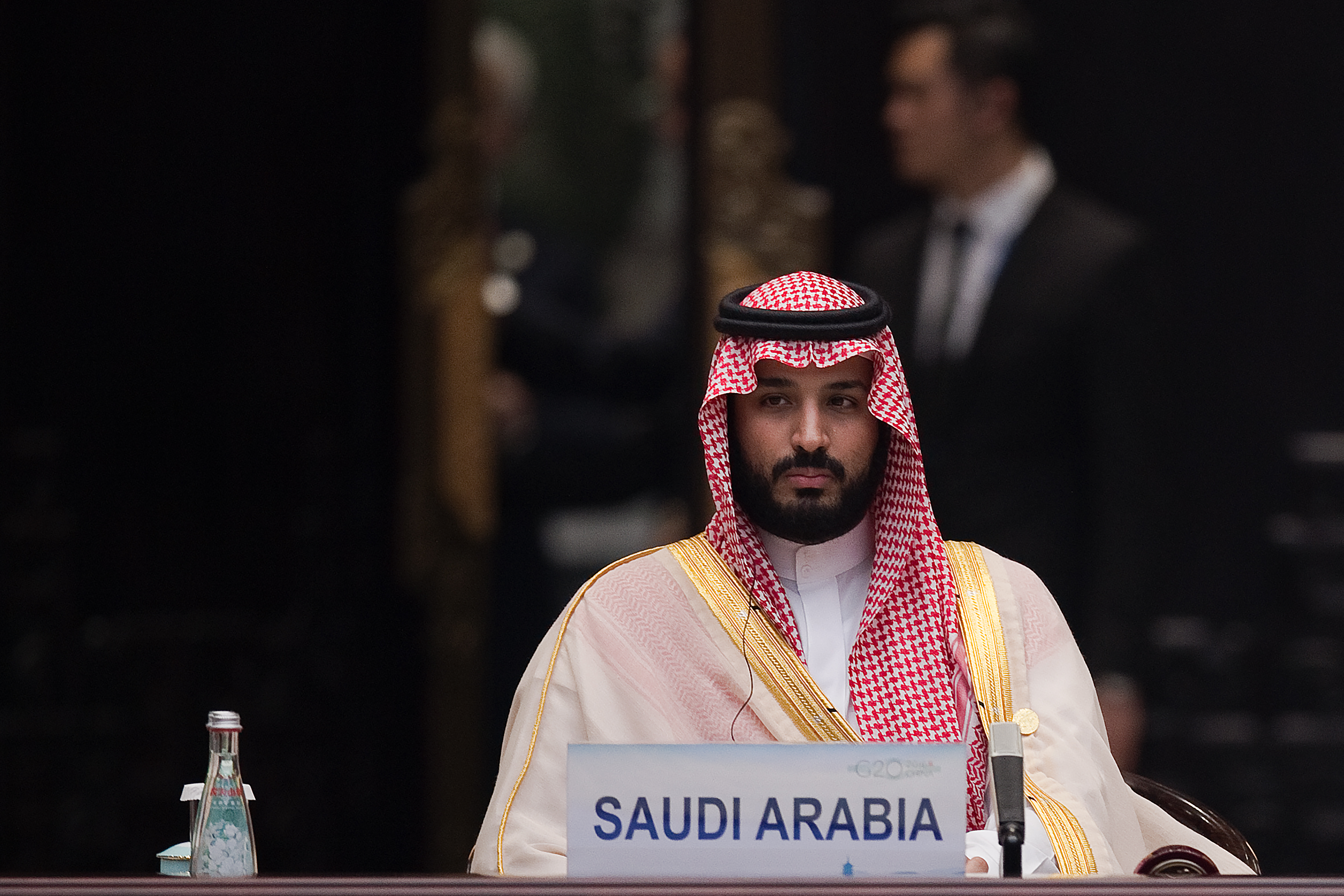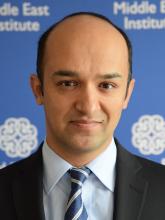In this week's Monday Briefing, MEI experts discuss recent and upcoming events including Washington's response to the Saudi problem, the fading threat of a military campaign in Idlib, a potential U.S.-Turkey rapprochement, and a new round of talks between Washington and the Taliban.
Has dealing with Mohammed bin Salman become too toxic?
Gerald Feierstein, Director of Government Relations, Policy and Programs
President Donald Trump announced early on Monday that, following a phone call with Saudi Arabia’s King Salman, he is sending Secretary of State Mike Pompeo to Riyadh to consult urgently with the Saudi leadership. The call and dispatch of the secretary followed a weekend of escalating U.S.-Saudi tension. Under bipartisan pressure from Congress as well as in the media, Trump reversed course and promised there would be “severe punishment” for the Saudis if they were proved to be complicit in the disappearance/murder of U.S. permanent resident and Washington Post journalist Jamal Khashoggi. Trump’s comments drew a harsh response from the embattled Saudi leadership that threatened to retaliate if any sanctions are levied against the kingdom.
In the meantime, the so-called “Davos in the Desert” Saudi investment conference continued to hemorrhage participants. Over the last 48 hours, JPMorgan Chase CEO Jamie Dimon and Ford Motor Co. Chairman Bill Ford were the latest casualties of the fallout over the Khashoggi case. U.S. Treasury Secretary Steve Mnuchin has insisted that he still plans to attend the conference, one of the few high-profile participants remaining, but pressure will undoubtedly grow for him to stay away as well.
Despite his rhetoric about punishment, Trump is undoubtedly looking for ways to resolve the Saudi problem given the central role that Riyadh plays in U.S. regional objectives. Nevertheless, building on continuing frustration over the conflict in Yemen, the confrontation with Qatar, and human rights violations at home, the question remains whether Mohammed bin Salman’s recklessness, impetuosity, and authoritarian instincts have made him too toxic for Western governments and international business to deal with.
Idlib’s uneasy equilibrium
Charles Lister, Senior Fellow
Oct. 15 had been marked by Turkey and Russia as a deadline for jihadi militants to withdraw from a “demilitarized zone” in northwestern Syria. Doing so would sustain an existing state of “de-escalation” and stave off a potentially catastrophic pro-regime offensive. Although former al-Qaeda affiliate Hayat Tahrir al-Sham (HTS) did move some forces on Oct. 11, local monitors reported that many still remained within the demarcated zone.
Despite Syrian Foreign Minister Walid al-Muallem’s warning earlier on Oct. 15 that pro-regime forces were “ready” to “eliminate terrorism” in Idlib if the deal’s terms were not met, a military campaign does not necessarily look imminent. In fact, it looks possible that Russia is willing to accept an extension to the Oct. 15 deadline, provided progress was made on meeting the terms. Moreover, after a prolonged silence, HTS issued a statement on the eve of the deadline indicating a grudging willingness to abide by the agreement, while insisting that it did not trust Russia and would never renounce the value of “jihad and warfighting.” Days earlier, HTS had even militarily intercepted a cell of fighters from al-Qaeda front group Tanzim Huras al-Din, which had planned a suicide bomb attack on a regime checkpoint in the northwest—something that could easily have catalyzed a major escalation.
The demilitarized zone agreement made on Sept. 17 was at its core a temporary arrangement, in which Turkey was granted a time extension to achieve a separation of irreconcilable extremists from other fighters willing to abide by externally imposed and increasingly restrictive de-escalation arrangements. It is hard to imagine Ankara sustaining this dynamic forever. Key questions remain: How long will Russia’s patience last? How long can Russia forestall the regime’s determination to go on the attack? How flexible can the likes of HTS really be and how long can al-Qaeda loyalists be prevented from spoiling?
Are US-Turkey ties on the mend?
Gonul Tol, Director for Turkish Studies
Pastor Andrew Brunson, the man at the center of a diplomatic row between Turkey and the U.S., was released by a Turkish court on Friday. Brunson’s case had badly damaged relations between the two NATO allies. At a news conference in the Oval Office, where President Donald Trump welcomed Brunson, Trump said the release was “a tremendous step” toward “great” relations with Ankara.
Brunson’s release might have cleared the air between the countries’ two presidents, but outstanding issues remain. The Turkish side demands flexibility on the upcoming sanctions that will target Iran’s energy exports. Iran is a key supplier of Turkey’s oil and natural gas. While Turkey’s biggest oil importer has already cut back on oil shipments from Iran, a complete halt in energy imports is not possible. The Turkish side has been holding talks with the Americans over the issue. Brunson’s release increased hopes on the Turkish side that negotiations will yield positive results.
Turkey’s purchase of a Russian S-400 missile defense system is another thorny issue. Congress is particularly troubled by the purchase and has been pushing Ankara to reverse its decision. But Turkey might have little room to maneuver given how closely it has aligned itself with Russia on issues from energy to trade and security in Syria.
The U.S.’s partnership with the Syrian Kurdish militia known as the YPG, which has frustrated Ankara, is not likely to resolve itself either. Given U.S. plans to remain in Syria and the YPG being the only U.S. ally on the ground, the issue will remain a problem in Turkey-U.S. ties.
Analysts argue that the disappearance of Saudi journalist Jamal Khashoggi in the Saudi consulate in Istanbul might lead to cooperation between Turkey and the U.S. and further ease the tension. U.S. Vice President Mike Pence even offered FBI help for the investigation. Closer ties are a possibility if President Recep Tayyip Erdogan decides to give the Saudis a way out. But otherwise, it could create further problems between Ankara and Washington. Turkey sees the alleged killing as an operation against its sovereignty and has been waiting for Trump to increase pressure on the Saudis. That might not be forthcoming, which could create new problems for Washington and Ankara.
Talking to the Taliban
Ahmad Majidyar, MEI Fellow, Director of the IranObserved project
The Taliban has confirmed that its representatives in Qatar have met with Zalmay Khalilzad, the Trump administration’s newly appointed special envoy for Afghanistan.
While the meeting gives new life to Afghanistan’s stalled peace process, it is premature to hope for a major breakthrough anytime soon. This is because although the Taliban is willing to hold direct negotiations with Washington over the exit of foreign troops to end the “occupation” in Afghanistan, the militants still refuse to sit down with the Afghan government to discuss the potential for a political settlement to end the conflict. Quite the opposite, the insurgents have lately stepped up violence and have rejected Kabul’s offer for a cease-fire. Indeed, as Taliban representatives were meeting American officials, militants were waging violence across the country to target parliamentary candidates campaigning for next weekend’s elections.
A peace agreement, and its successful implementation, also requires a national consensus within Afghanistan. Disagreements between Afghan political elites and different ethnic groups over the nature of a peace deal with the Taliban, as well as divisions within the insurgents, further complicate any potential for reaching a broad agreement that could guarantee peace in post-withdrawal Afghanistan.
Moreover, rivalries between Afghanistan’s neighbors and growing tension between key regional players and Washington over other bilateral and international geopolitical and economic issues also hinder sincere cooperation on Afghanistan’s peace process.
Although the new round of talks is a step forward in facilitating formal negotiations with the Taliban, the failed history of talks with the Taliban indicate that success this time is far from certain.
Photo by Nicolas Asfouri - Pool/Getty Images






